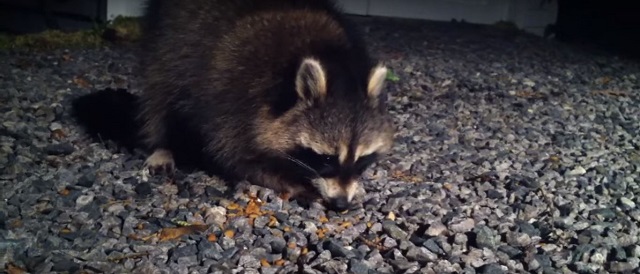
| Home | Essex County | Newark Wildlife | Prices | Contact Info |
Do New Jersey Raccoons Hibernate?
Winter is a challenging season for most animals. It affects the way of living such as food hunting, mating,
migration, and so on. Synonymous to winter is the hibernation of Newark animals. Hibernation is essential to survival.
The more you do not move, the more you conserve energy which you may need at the right time. But not all animals
hibernate. There are other coping mechanisms which can help in these challenging seasonal changes.

Deep sleep versus hibernation
The significant difference between deep sleep and hibernation is the lowering of body temperature, the control system responsible for each state, and the preparation needed. During hibernation:
- Animals have such a low body temperature.
- They undergo physiological changes to their systems such as minimal activity of the organs, zero excretion, and loss of consciousness.
- To be able to wake up a hibernating animal, it needs to restore the endocrine system’s normal function of producing hormones to power up the entire body. In most cases, these consume too much energy that New Jersey animals go into deep sleep after hibernation to be able to recover.
On the other hand, deep sleep only:
- Provides a slightly lowered body temperature and blood pressure that can easily be restored once awake.
- All body organs are business as usual, with some reduced activity but not totally on strike.
- In addition, deep sleep does not require any tedious preparation such as den creation and food storage.
- Sleep is a function controlled by the brain.
How raccoons adapt
Seasonal changes greatly affect Newark raccoons’ daily lives. Some can tolerate colder environments, which are raccoons with more stored body fats than others. For some, they need to seek a warmer environment near their home to be able to survive while eating a ton of food in preparation for the upcoming cold months. Nonetheless, they do not migrate from one place to another due to climate change.
Raccoons during winter
During cold season, raccoons need to stay indoors for weeks to live on. They rely on whatever they have in their home to survive. They adapt with their surroundings through a deep sleep rather than hibernation. During their deep sleep, they use up their stored fats as fuel to run their bodily functions. Raccoons also take advantage some warmer nights during winter to hunt for food at night. This is also the time where New Jersey raccoons become house pests. As they keep on searching for warmth, they find your home which can provide not only heat but also food and water.
Other adaptation techniques for raccoons’ survival
Instead of hibernating, raccoons physically adapt in the temperature changes through their fur. During cold months, raccoons have thicker fur which stabilizes their internal temperature. On warmer seasons, the thickness of their fur is reduced by as much as 40 percent.

Go back to the Wildlife Removal Newark home page.

Deep sleep versus hibernation
The significant difference between deep sleep and hibernation is the lowering of body temperature, the control system responsible for each state, and the preparation needed. During hibernation:
- Animals have such a low body temperature.
- They undergo physiological changes to their systems such as minimal activity of the organs, zero excretion, and loss of consciousness.
- To be able to wake up a hibernating animal, it needs to restore the endocrine system’s normal function of producing hormones to power up the entire body. In most cases, these consume too much energy that New Jersey animals go into deep sleep after hibernation to be able to recover.
On the other hand, deep sleep only:
- Provides a slightly lowered body temperature and blood pressure that can easily be restored once awake.
- All body organs are business as usual, with some reduced activity but not totally on strike.
- In addition, deep sleep does not require any tedious preparation such as den creation and food storage.
- Sleep is a function controlled by the brain.
How raccoons adapt
Seasonal changes greatly affect Newark raccoons’ daily lives. Some can tolerate colder environments, which are raccoons with more stored body fats than others. For some, they need to seek a warmer environment near their home to be able to survive while eating a ton of food in preparation for the upcoming cold months. Nonetheless, they do not migrate from one place to another due to climate change.
Raccoons during winter
During cold season, raccoons need to stay indoors for weeks to live on. They rely on whatever they have in their home to survive. They adapt with their surroundings through a deep sleep rather than hibernation. During their deep sleep, they use up their stored fats as fuel to run their bodily functions. Raccoons also take advantage some warmer nights during winter to hunt for food at night. This is also the time where New Jersey raccoons become house pests. As they keep on searching for warmth, they find your home which can provide not only heat but also food and water.
Other adaptation techniques for raccoons’ survival
Instead of hibernating, raccoons physically adapt in the temperature changes through their fur. During cold months, raccoons have thicker fur which stabilizes their internal temperature. On warmer seasons, the thickness of their fur is reduced by as much as 40 percent.

Go back to the Wildlife Removal Newark home page.